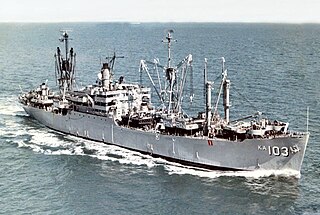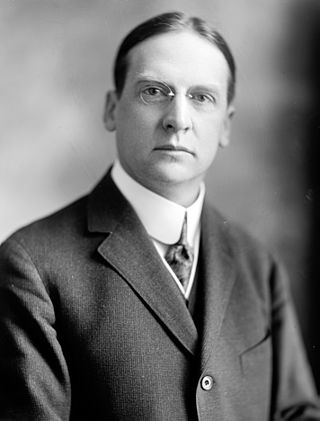Related Research Articles

Earl Warren was an American lawyer, politician, and jurist who served as the 30th governor of California from 1943 to 1953 and as the 14th Chief Justice of the United States from 1953 to 1969. The Warren Court presided over a major shift in American constitutional jurisprudence, which has been recognized by many as a "Constitutional Revolution" in the liberal direction, with Warren writing the majority opinions in landmark cases such as Brown v. Board of Education (1954), Reynolds v. Sims (1964), Miranda v. Arizona (1966), and Loving v. Virginia (1967). Warren also led the Warren Commission, a presidential commission that investigated the 1963 assassination of President John F. Kennedy. He served as Governor of California from 1943 to 1953, and is the last chief justice to have served in an elected office before nomination to the Supreme Court. Warren is generally considered to be one of the most influential Supreme Court justices and political leaders in the history of the United States.

Criminal justice is the delivery of justice to those who have been accused of committing crimes. The criminal justice system is a series of government agencies and institutions. Goals include the rehabilitation of offenders, preventing other crimes, and moral support for victims. The primary institutions of the criminal justice system are the police, prosecution and defense lawyers, the courts and the prisons system.

The seventh USS Ranger (CV/CVA-61) was the third of four Forrestal-class supercarriers built for the United States Navy in the 1950s. Although all four ships of the class were completed with angled decks, Ranger had the distinction of being the first US carrier built from the beginning as an angled-deck ship.

Culbert Levy Olson was an American lawyer and politician. A Democratic Party member, Olson was involved in Utah and California politics and was elected as the 29th governor of California from 1939 to 1943. He was the first atheist governor of an American state.

USS Moody (DD-277) was a Clemson-class destroyer in the United States Navy in commission from 1919 to 1922 and from 1923 to 1930. She was named for Secretary of the Navy (and future Supreme Court Justice} William Henry Moody.
USS Yarborough (DD-314) was a Clemson-class destroyer in the United States Navy.

Hammac was a steam tank ship built in 1920–1921 by Bethlehem Shipbuilding Corporation of Alameda for the United States Shipping Board as part of the wartime shipbuilding program of the Emergency Fleet Corporation (EFC) to restore the nation's Merchant Marine. Early in 1923 the vessel together with two other tankers was sold to General Petroleum Corporation and renamed Emidio. The tanker spent the vast majority of her career carrying oil along the West Coast of the United States as well as between West and East coast. In December 1941 she was shelled and damaged by the Japanese submarine I-17 and eventually wrecked with a loss of five crewmen.

USS Rankin (AKA-103/LKA-103) was a Tolland-class attack cargo ship in service with the United States Navy from 1945 to 1947 and again from 1952 to 1971. She was finally sunk as an artificial reef in 1988.

Joseph Russell Knowland was an American politician and newspaper publisher. He served as a member of the United States House of Representatives from California and was owner, editor and publisher of the Oakland Tribune. He was the father of United States Senator William F. Knowland.
The National Maritime Union (NMU) was an American labor union founded in May 1937. It affiliated with the Congress of Industrial Organizations (CIO) in July 1937. After a failed merger with a different maritime group in 1988, the union merged with the Seafarers International Union of North America in 2001.

The Pacific Coast Marine Firemen, Oilers, Watertenders and Wipers Association (MFOW), commonly referred to as the Marine Firemen's Union, is an American labor union of mariners working aboard U.S. flag vessels. The Marine Firemen's Union is an affiliate union of the Seafarers International Union of North America AFL–CIO.

USS Black Hawk (AD-9) was a destroyer tender.

USS General George M. Randall (AP-115) was a General John Pope class troop transport which served with the United States Navy in World War II and the postwar era. She was named after Major General George Morton Randall, an American Civil War hero, and veteran of the Indian wars of the 1880s and the Philippines in the early 1900s.

USS Kershaw (APA-176) was a Haskell-class attack transport in service with the United States Navy from 1944 to 1946. She was scrapped in 1982.

SS California was the World's first major ocean liner built with turbo-electric propulsion. When launched in 1927 she was also the largest merchant ship yet built in the US, although she was a modest size compared with the biggest European liners of her era.

The American-Hawaiian Steamship Company was founded in 1899 to carry cargoes of sugar from Hawaii to the United States and manufactured goods back to Hawaii. Brothers-in-law George Dearborn and Lewis Henry Lapham were the key players in the founding of the company. The company began in 1899 with three ships, operated nine by 1904 and was operating seventeen by 1911 with three on order.
The Alameda County Superior Court, officially the Superior Court of California, County of Alameda, is the California superior court with jurisdiction over Alameda County as established by Article VI of the Constitution of California. It functions as the trial court for both criminal and civil cases filed in Alameda County.

Charles Harris Garrigues was an American writer and journalist. He was a general-assignment reporter in Los Angeles, California, in the 1920s, a grand jury investigator and political activist in the 1930s, a newspaper copy editor in the 1940s and a jazz critic in the 1950s. His nickname was Brick, for his red hair.

Atlanta was a steamboat built in 1908 at Houghton, Washington which served on Lake Washington and Puget Sound until 1938, when it was converted into a diesel-powered houseboat.

Warren Olney III was an American attorney and law enforcement official, soldier, and Attorney General. He ran the Criminal Divisions of the California Department of Justice and later the United States Department of Justice (DOJ). He was an integral part of the creation of the Civil Rights Division of the DOJ, and helped write the Civil Rights Act of 1957.
References
- ↑ The Panama Canal Record. Vol. 29. p. 131.
- 1 2 George Garrigues, He Usually Lived With a Female: The Life of a California Newspaperman, Los Angeles, Quail Creek Press, pages 150, 152 ISBN 0-9634830-1-3
- ↑ Leo Huberman, Free These Three: A Labor Story, pamphlet issued by the King-Ramsay-Conner Defense Committee, undated
- ↑ See In re Wallace, 24 Cal. 2d 933, 152 P.2d 1 (1944).
- ↑ People v. King
- 1 2 "The King, Connor, Ramsay Case," History of the Marine Firemen's Union website
- ↑ Punishment Without Crime, published by the King-Ramsay-Conner Defense Committee (sponsor, Maritime Federation of the Pacific), San Francisco, undated